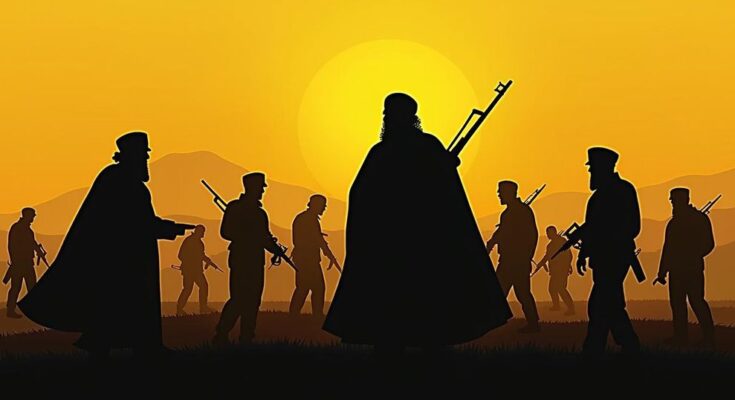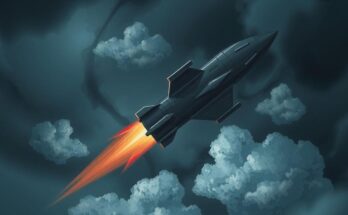The article discusses the reported death of Sayyed Hassan Nasrallah, Hezbollah’s long-time leader, following an Israeli airstrike. Nasrallah has significantly influenced Hezbollah’s growth as a military entity with regional authority, supported by Iran. The implications of his potential death raise questions about Hezbollah’s future, Israel’s ongoing military actions, and the evolving circumstances in Lebanon and the wider Middle East.
Sayyed Hassan Nasrallah, leader of Hezbollah for the past 32 years, has been at the forefront of the organization’s evolution into a significant military power in the region, bolstered by Iranian support. Following an Israeli airstrike purportedly resulting in his death, Hezbollah remains silent regarding Nasrallah’s status. The Israeli military claimed responsibility for this operation, stating, “eliminated … Hassan Nasrallah, leader of the Hezbollah terrorist organization,” according to spokesperson Avichay Adraee. If confirmed, Nasrallah’s death would mark the end of a leadership characterized by defiance against Israel and the United States. To his supporters, he symbolizes resistance, while his critics designate him a terrorist and a proxy for Iran’s influence in the Middle East. Over the last year, tensions escalated, especially during the Gaza conflict, as Hezbollah engaged in military actions against Israel from Lebanon’s southern border, aligning itself with Hamas. Nasrallah had claimed upon addressing thousands of mourners that his organization was at the brink of significant conflict, stating, “We are facing a great battle,” during a eulogy for a Hezbollah commander killed in an Israeli strike. Despite his earlier defiance, Israeli military actions have increased significantly, targeting senior Hezbollah figures and intensifying assaults in Lebanese areas controlled by the group, resulting in numerous civilian deaths. Nasrallah has not addressed the public since outlining retaliatory measures against these Israeli strikes. Known for his oratory skills, Nasrallah galvanizes support through public speeches. He ascended to lead Hezbollah in 1992, gaining prominence after the group’s successful expulsion of Israeli forces from southern Lebanon in 2000. His declaration of a “divine victory” in the 2006 Lebanon War further solidified his role as a rallying figure in the Arab world. Nonetheless, his leadership faced challenges as Hezbollah expanded its operations into Syria, embroiling the group in a complex sectarian conflict. Critics argue that such entanglements have adversely affected Lebanon’s stability and international relations, particularly with Gulf nations. Nasrallah’s controversial decisions have sometimes incited domestic unrest, exemplified by the civil strife in 2008 when his forces clashed with opposition groups in Beirut. His denials regarding involvement in significant political assassinations add further complexity to his legacy.
The article explores the impact and significance of Sayyed Hassan Nasrallah’s leadership over Hezbollah, particularly in the context of his reported death following an Israeli military strike. It delves into Nasrallah’s role in transforming Hezbollah into a prominent military entity backed by Iran while navigating conflicts with Israel and regional adversaries. His influence spans decades of confrontation, marked by various military engagements and a rhetorical stance that has both inspired support and drawn criticism. The piece is framed around the broader implications of his actions for Lebanon and the Middle East as a whole, particularly amid rising tensions in the aftermath of the Gaza conflict.
In conclusion, Sayyed Hassan Nasrallah’s leadership of Hezbollah has significantly impacted the organization’s trajectory, allowing it to emerge as a regional military power with substantial influence due to Iranian support. However, the recent Israeli military claim concerning his alleged death poses questions about Hezbollah’s future and the potential shifts in regional dynamics. Will Nasrallah be remembered as a symbol of resistance or further contribute to the narrative of terrorism? The responses from Hezbollah and broader implications for Lebanon remain to be seen, particularly in light of recent escalations and internal divisions within the region.
Original Source: www.voanews.com




